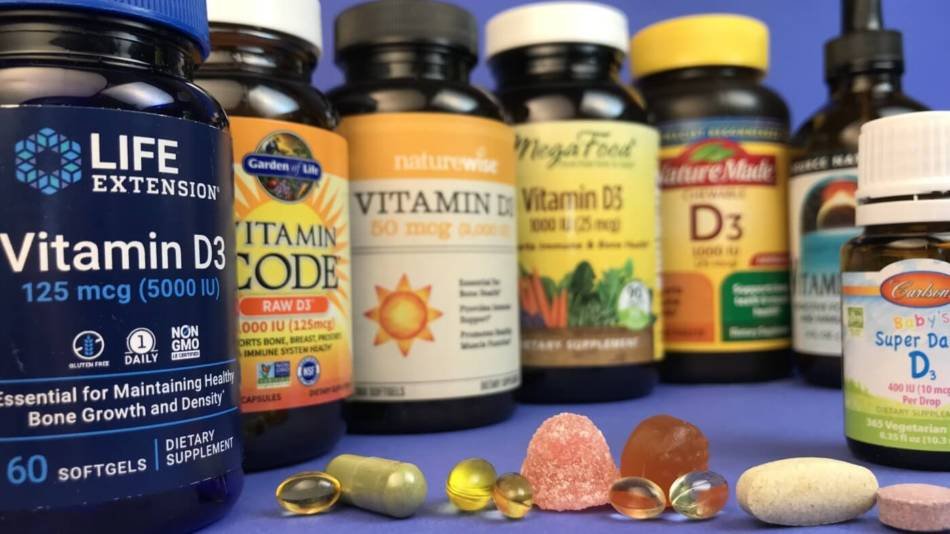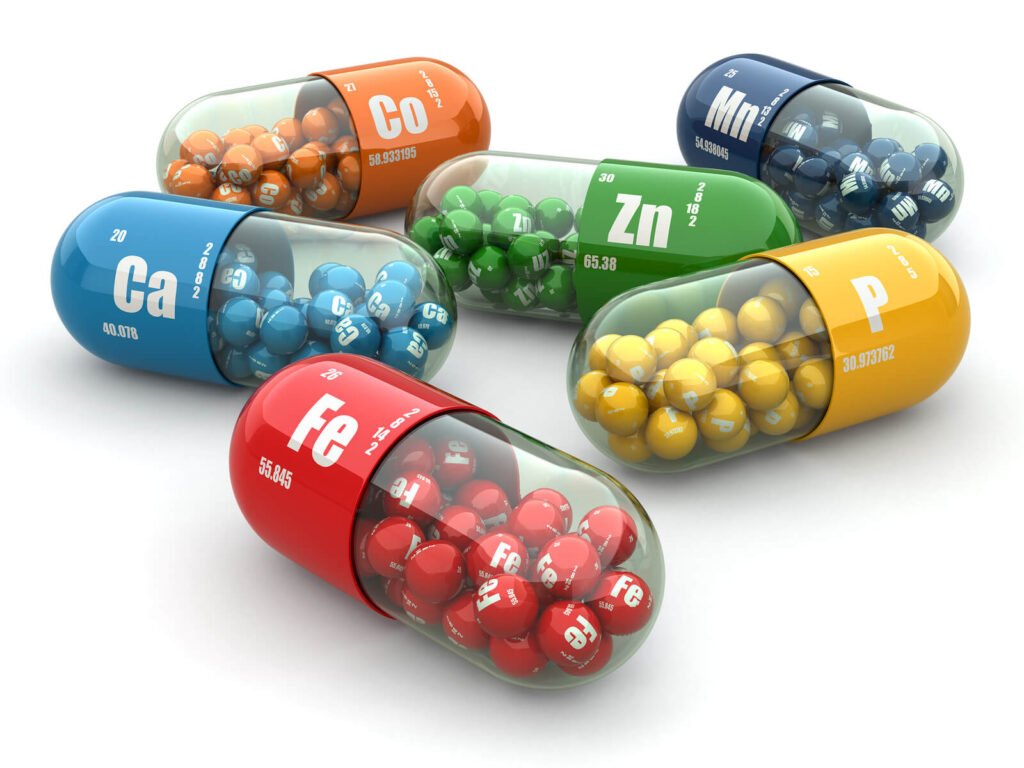Introduction to Vitamins
Vitamins are indispensable nutrients that play a pivotal role in maintaining our health. Far from being optional add-ons, these organic compounds are essential for a multitude of bodily functions, including growth, immune function, and metabolism. Without them, our bodies simply cannot operate efficiently.
Vitamins are broadly categorized into two groups: fat-soluble and water-soluble. Fat-soluble vitamins, which include Vitamins A, D, E, and K, are stored in the body’s fatty tissue and liver. This storage capability means that they do not need to be consumed daily, but it also implies that excessive intake can lead to toxicity. On the other hand, water-soluble vitamins such as Vitamin C and the B-complex vitamins (B1, B2, B3, B6, B12, folic acid, biotin, pantothenic acid) are not stored in the body and must be ingested regularly. These vitamins are excreted through urine, making them less likely to reach toxic levels but more critical to maintain a steady intake.
The history of vitamin discovery is a fascinating journey that has significantly transformed health and wellness. The term “vitamin” was coined in the early 20th century, but the recognition of their importance dates back to ancient times. Sailors suffering from scurvy due to Vitamin C deficiency and the discovery of beriberi linked to Vitamin B1 deficiency are notable examples that propelled the scientific community to delve deeper into understanding these essential nutrients.
In today’s fast-paced world, understanding the role of vitamins is more important than ever. Advances in research continue to shed light on their complex functions, enabling us to optimize our health and prevent deficiencies. For a deeper dive into the types of vitamins and their specific roles, check out this comprehensive guide on vitamins.
Types of Vitamins and Their Functions
Understanding the various types of vitamins and their functions is crucial for maintaining optimal health. Vitamins are essential micronutrients that the body requires to perform a range of vital functions. There are two categories of vitamins: water-soluble and fat-soluble. Here, we explore the specific roles, recommended daily intake, and sources of each essential vitamin.
Vitamin A
Vitamin A is crucial for maintaining healthy vision, skin, and immune functions. The recommended daily intake for adult men is 900 micrograms (mcg) and for adult women, it is 700 mcg. Sources include liver, fish oils, green leafy vegetables, and dairy products.
Vitamin B Complex
The B vitamins, including B1 (thiamine), B2 (riboflavin), B3 (niacin), B5 (pantothenic acid), B6 (pyridoxine), B7 (biotin), B9 (folate), and B12 (cobalamin), play a crucial role in energy production, brain function, and cell metabolism. Each B vitamin has unique functions and recommended daily intake varies, generally ranging from 1.2 to 2.4 milligrams (mg). Rich sources are whole grains, meat, eggs, legumes, seeds, and nuts.
Vitamin C
Vitamin C, an antioxidant, supports the immune system, aids in the absorption of iron, and promotes healthy skin. The recommended daily intake is 90 mg for men and 75 mg for women. Citrus fruits, strawberries, bell peppers, and broccoli are excellent sources.
Vitamin D
Essential for bone health, vitamin D facilitates calcium absorption. The recommended daily intake is 600 international units (IU) for adults up to age 70 and 800 IU for those older. Sunlight exposure, fatty fish, fortified dairy products, and egg yolks are good sources.
Vitamin E
Vitamin E acts as an antioxidant, protecting cells from damage. The recommended daily intake is 15 mg for adults. Sources include vegetable oils, nuts, seeds, and green leafy vegetables.
Vitamin K
Vitamin K is vital for blood clotting and bone metabolism. The recommended daily intake is 120 mcg for men and 90 mcg for women. Sources include green leafy vegetables, fish, meat, and dairy products.
For those seeking more in-depth information, the National Institutes of Health (NIH) Office of Dietary Supplements offers comprehensive resources on each vitamin’s benefits, recommended doses, and potential side effects.
Common Vitamin Deficiencies and How to Avoid Them
Vitamin deficiencies are a widespread issue that can have significant impacts on overall health. Among the most prevalent deficiencies are those of Vitamin D, B12, and iron. Understanding the symptoms and preventive measures can help mitigate the adverse effects associated with these deficiencies.
Vitamin D deficiency is notably common, particularly in regions with limited sunlight exposure. Symptoms can include fatigue, bone pain, and muscle weakness. To prevent this, incorporating Vitamin D-rich foods like fatty fish, fortified dairy products, and egg yolks into your diet is essential. Additionally, moderate sun exposure can significantly boost Vitamin D levels, although supplementation might be necessary for those in less sunny climates.
Vitamin B12 is crucial for nerve function and the production of DNA and red blood cells. Deficiency symptoms often manifest as fatigue, weakness, and neurological issues. This deficiency is particularly prevalent in vegetarians and vegans, as B12 is primarily found in animal products. To counter this, consuming fortified cereals, and dairy products, and taking B12 supplements can be effective.
Iron deficiency, often leading to anemia, is another common issue. Symptoms include extreme fatigue, weakness, and pale skin. Iron is vital for producing hemoglobin, which carries oxygen in the blood. To prevent iron deficiency, include iron-rich foods such as red meat, beans, lentils, and spinach in your diet. Pairing these with Vitamin C-rich foods like oranges and strawberries can enhance iron absorption.
Dietary choices, lifestyle factors, and geographical location can significantly influence vitamin levels. Regular blood tests can help monitor these levels and ensure timely intervention. Practical tips like diversifying your diet, considering supplements, and staying informed about your body’s needs are essential steps in maintaining optimal health.

For a more detailed analysis, visit this article on vitamin deficiencies.
Supplementing Vitamins: Are Pills Better than Food?
The question of whether to obtain vitamins from supplements or food has long been a topic of discussion among health professionals and nutrition enthusiasts. Both methods have their advantages and disadvantages, and the best approach often depends on individual health needs, dietary habits, and lifestyle choices.
One of the primary benefits of getting vitamins from food is the bioavailability of nutrients. Many vitamins and minerals are better absorbed when consumed as part of whole foods. For example, fat-soluble vitamins like A, D, E, and K are absorbed more efficiently when ingested with dietary fats found in foods such as avocados, nuts, and dairy products. Additionally, whole foods offer a complex matrix of nutrients, fiber, and phytochemicals that work synergistically to enhance overall health.
However, certain populations may benefit from vitamin supplements. Individuals with specific health conditions, or dietary restrictions, or those who follow vegan or vegetarian diets might find it challenging to obtain adequate levels of certain vitamins from food alone. For instance, vitamin B12, which is primarily found in animal products, is often lacking in plant-based diets, making supplementation necessary. Similarly, people with malabsorption issues or digestive disorders may require specific vitamin supplements to meet their nutritional needs.
While supplements can be beneficial, they also come with potential risks. Overconsumption of certain vitamins, particularly fat-soluble ones, can lead to toxicity and adverse health effects. For example, excessive intake of vitamin A can cause liver damage, while too much vitamin D can result in hypercalcemia, leading to kidney stones and other complications. Therefore, it is crucial to follow recommended dosages and consult with healthcare professionals before starting any supplementation regimen.

When choosing vitamin supplements, quality matters. Opt for products that have been independently tested and verified for purity and potency. Look for certifications from reputable organizations such as the United States Pharmacopeia (USP) or NSF International. Additionally, consider the form of the vitamin; for example, some people may find that certain forms of vitamin D (such as D3) are more effective than others.
In conclusion, while obtaining vitamins from food is generally preferable due to better nutrient absorption and the presence of other beneficial compounds, supplements can play a crucial role in filling nutritional gaps for certain individuals. It is essential to make informed decisions based on personal health needs and to consult with healthcare providers to ensure the safe and effective use of vitamin supplements.







